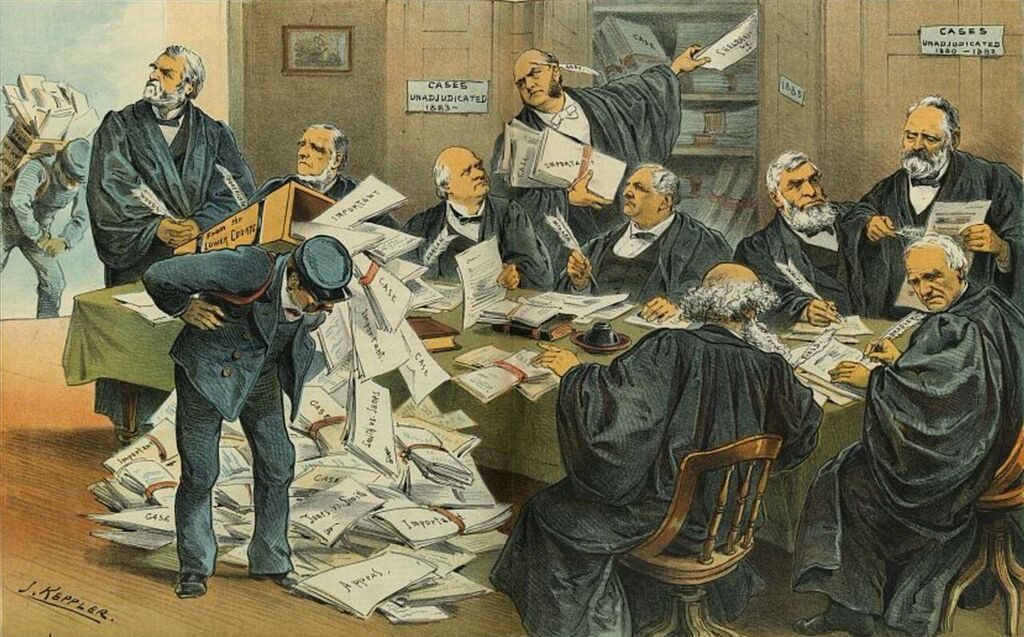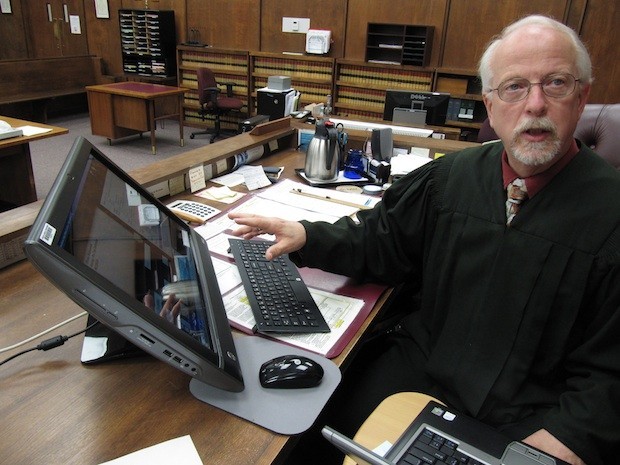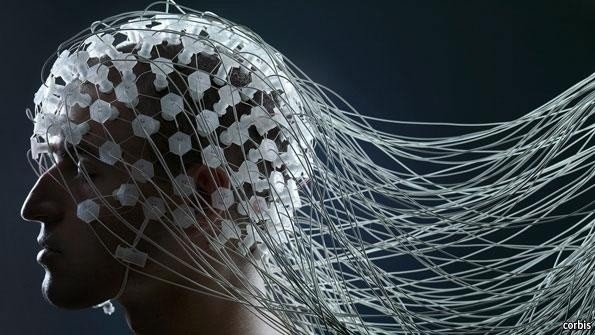While amateur grinders play with magnets below the skin other biohacking 101 parlor tricks, larger stones of hacking the human experience are at work in white collar jobs.
DARPA recently admitted to pairing human researchers with a smart machine to solve cancer treatment challenges, but there may be another way, through the legal system.
Our legal system is in a backup, has been in populated places, for years, decades in some cases. Machine learning could help judges make better decisions, faster.
If it happens and if it works, this could not only revolutionize the legal system but establish a precedent for other similar applications.
What is starting as a logical, time and money-saving move for our legal system will bleed into the future of human decision making. This is the first base camp on the climb to accepting the eventuality of humans and machines working together in harmony.
It’s also the way we’ll stop seeing machines as foes.
The Problem

Because of the backlog, judges work under pressure to work efficiently. They have to make quick decisions about defendants with a limited scope. Should the defendant await trial at home or in jail?
Wrong choices clog our jails or worse, let one we should watch get away. Unstable defendants may commit more crimes considering they have nothing to lose. The trouble is knowing which are unstable.
By making the wrong choice, judges inadvertently contribute to rises in crime. It’s not their fault. There are limits to the power of one human brain, regardless of that human’s experience.
The Solution

A new study from the National Bureau of Economic Research (NBER) and Cornell leverages an algorithm designed to predict the flight risk of a defendant. The program pulls data from the defendant’s rap sheet and court records, comparing it with mountains of data.
A judge makes decisions on gut feelings and experience, lenses picked up over time. An algorithm uses massive amounts of data; more than a single person could compile in her gut feelings.
The research from Cornell concluded that the software could cut crime by 25% without adding more bodies to our overcrowded jails. The researchers believe they could use the same algorithm to reduce the number of jailed defendants awaiting trial by over 40%.
What’s more, they believe they could deliver these improvements without changing the crime rate for the worse.
The Application

This isn’t quite cybernetic humans, yet, but it’s a step on the way to melding humans with machines. In many ways, it’s similar to the way we use search engines.
Computers can consider more points of data, faster, with better results. Before the internet, research was a time-agonizing experience of Dewey decimal systems and files filled with tiny note cards.
If we can speed up the decision making of judges, it’s a short jump to other industries, like doctors, lawyers, and other professionals.
In fact, I would lobby that it’s only a matter of time before you see this kind of augmentation in your own profession.
The good news about this is we don’t have to fear the machine uprising predicted by philosophers. When humans and machines evolve together, which is what we’re talking about, the lines between us will fade.
Biohacking in this way is less of a right turn and more of a slow curve in the road.
Source: MIT Technology review